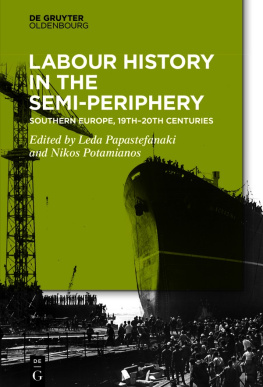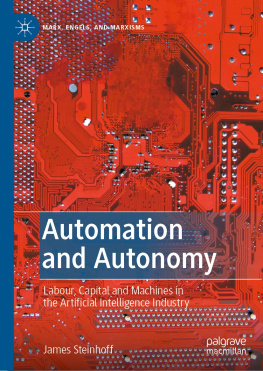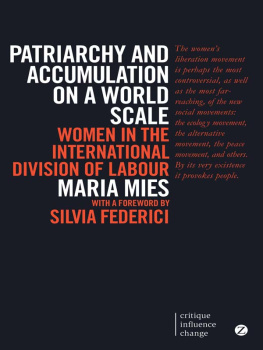First published 2002 by sociologypress
Published 2013 by Routledge
2 Park Square, Milton Park, Abingdon, Oxon OX14 4RN
711 Third Avenue, New York, NY, 10017, USA
Routledge is an imprint of the Taylor & Francis Group, an informa business
sociologypress is supported by the British Sociological Association. It furthers the Associations aim of promoting the discipline of sociology and disseminating sociological knowledge.
Liz Stanley 2002
All rights reserved. Except for the quotation of short passages for the purposes of criticism and review, no part of this publication may be reproduced, stored in a retrieval system, or transmitted in any form, or by any means, without the prior permission of the publisher.
This book may not be circulated in any other binding or cover and the same condition must be imposed on any acquiror.
British Library Cataloguing in Publication Data
A CIP catalogue record for this book is available from the British Library
ISBN 13: 978-1-903-45704-7 (pbk)
Acknowledgements
When writing a book has spanned three continents and half a dozen major archives, and its production has traded on the goodwill and knowledge of many others working in the field, there are inevitably debts of gratitude to be acknowledged. I am very pleased to be able to do this here.
The initial funding to carry out archive work, first in the USA, then in South Africa, was provided by the British Academy. I am particularly pleased to publicly acknowledge the Academys early assistance for my Schreiner research, as without it neither this book nor a number of related publications would have been written. More recently, the UKs Economic and Social Research Council (ESRC) has funded an extended period of work on Schreiners letters through a Research Fellowship, and I would also like to gratefully acknowledge its support here.
This manuscript was first contemplated while I was the Faculty of Arts Senior Research Fellow at the University of Auckland, New Zealand, during 1998. I am grateful to the University of Auckland for this opportunity for an extended period of thinking, reading and writing, and to the Womens Studies Centre and its head, Maureen Molloy, for hosting me. After returning from Auckland, I then rewrote the manuscript substantially, having done that terrible thing, changed my mind; and I am grateful to colleagues and friends for putting up with a great deal of distraction and elsewhereness while I did so. The final work on the manuscript was carried out during 2000, while I held the Hugh Le May Fellowship at Rhodes University, South Africa. I would like to thank Rhodes University for awarding me the Fellowship and also the Sociology Department and its head, Fred Hendricks, for hosting me. I am particularly grateful to Jan and Este Coetzee for their kindness, help and friendship, and to Denise Wisch for making my life in the department run so well.
I am extremely grateful to all the archives I have worked in, including for permissions to publish material that has appeared in chapters and journal articles over the years: in South Africa, the Cory Library, Rhodes University, Grahamstown; the National English Literary Museum, Grahamstown; the Manuscripts and Archives Department of the University of Cape Town Library; the South African Library, Cape Town; and the Cullen Library (Historical Papers) at the University of Witwatersrand, Johannesburg; in the USA, the Harry Ransome Humanities Research Center, University of Texas, Austin; and in the UK, Sheffield City Archives, and the University of London.
There are personal debts of gratitude I would like to acknowledge and also to give thanks for advice and help gratefully received. My thanks to: Arai Noriko, Joyce Avrech Berkman, Lucy Bland, Leila Carnill, Jan Coetzee, Alison Donnell, Rosemary Du Plessis, Debbie Epstein, Michael Erben, Betty Govinden, Lesley Hart at UCT, Steve Hicks, Renee Hoagland, Alison Laurie, Ronit Lentin, Jackie Loos at SAL, Magda Michelsens, Maureen Molloy, Colin Murray, Karen Phillips from Sage Publications, Michele Pickover from Wits, Pauline Polkey, Vicki Robinson, Monty Roodt, Sara Scott, Charlotte Sing, Dale Spender, Ann Torlesse at NELM, Volker Wedekind, and Heather Worth. My love and thanks to Heather for interesting ideas, good dinners, excellent wine, much laughter and the great gift of friendship; if new technology is worth the candle, it will bring the UK and New Zealand closer together. Joyce Berkman and Volker Wedekind read and commented in depth on the manuscript; I am very grateful to them both and have done my best to use all of their suggestions. I am of course responsible for the errors and infelicities that this book may contain; but then, I am largely responsible for whatever strengths it has as well. I hope the first are outweighed by the second and that reading it is half as interesting as writing it has been.
Sue Wise has put up with living with Olive Schreiner for a good few years now. She will know that, once Ms Schreiner goes off to the publisher for the last time, then an equally expensive and time-consuming other woman will make her entrance in our lives, so she is doubtless pleased that my work on Schreiner is to continue for a while yet, even though her erstwhile friend Emily Hobhouse (with 27,000 dead women and children) has joined her. Thank you dearest Sue, including for the last nearly thirty years of love, lust and a good many excellent dinners as well. A public goodbye goes to the furry St Thomas Aquinas (deceased), otherwise known as Our Sweet Tom. I hope his brothers Alfred Schutz and Precious Mackenzie and his sister Jessye Norman will at some point forgive my various gallivantings round the world.
This book is in memory of Pauline Polkey, who was generous and good fun, and who cared a good deal about getting womens lives into print. She is much missed.
Details of the main archive sources used are provided in the Appendix on Schreiner Writings and Archive Collections. The main abbreviations are as follows:
Cory: Cory Library, Rhodes University, Grahamstown, South Africa
NELM: National English Literary Museum, Grahamstown, South Africa
SAL: South African Library, Cape Town, South Africa
UCT: University of Cape Town, South Africa
Wits Findlay: Findlay Family Papers, Historical Papers, University of Witswatersrand, Johannesburg, South Africa
London Pearson: Karl Pearson Collection, University of London, UK
Sheffield Carpenter: Edward Carpenter Collection, Sheffield City Archives, UK
HRC: Humanities Research Center, University of Texas at Austin, USA
There are endnotes to each chapter. In these, references to Olive Schreiners own publications take the form of an abbreviated title (and page numbers where relevant); details about the particular editions used will be found in the Appendix on Schreiner Writings and Archive Collections. Cronwright-Schreiners The Letters of Olive Schreiner is referred to in endnotes as The Letters, while other references in the endnotes follow the Harvard style. Full publishing information is provided in the References and annotated bibliography at the end of the book.









